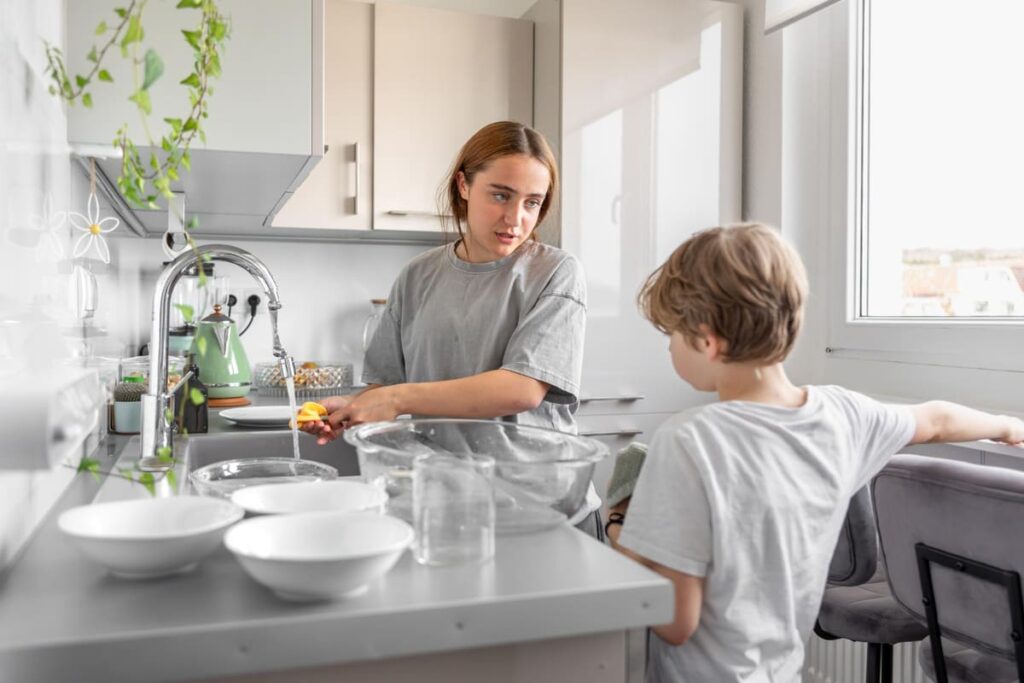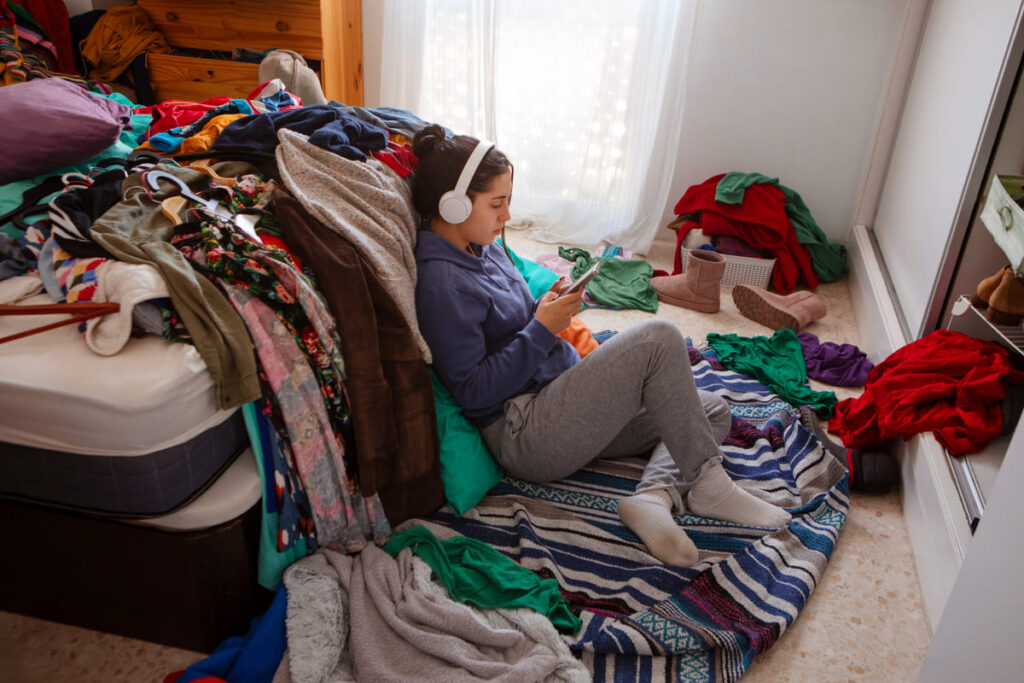15 Signs Your Adult Children Aren’t as Independent as They Claim
It’s natural to want your adult children to be self-sufficient and confident in managing their own lives. Sometimes, though, what they say about their independence doesn’t quite match up with their actions or choices.
Recognizing the signs that your children aren’t as independent as they claim can help you understand where they might still need support. This awareness allows you to offer help in the right way without overstepping or enabling dependence.
They frequently call for help with basic household tasks

If your adult children often reach out to you for simple chores, it might mean they’re not fully handling their own space. Tasks like changing a light bulb or fixing a leaky faucet shouldn’t always need your guidance.
You want them to build confidence in managing everyday problems on their own. Frequent calls for help with basic issues can indicate they haven’t yet learned to rely on themselves fully.
Still rely on parents for financial bailouts

You might notice your adult children asking for money more often than you’d expect. This could be for rent, bills, or unexpected expenses that they should handle themselves.
If they depend on you regularly, it suggests they aren’t managing their finances independently. Occasional help is normal, but consistent bailouts mean they haven’t fully taken control of their money.
Avoiding long-term job commitments

You might notice your adult child hesitates to commit to a stable job for an extended period. They may switch roles frequently or avoid positions that require long-term contracts.
This could show a reluctance to take on steady responsibilities. It often means they’re unsure about their career goals or prefer not to settle down yet.
If they frequently complain about job security or express a strong desire to “keep options open,” it’s a sign they might not be fully independent in their career decisions.
Refusing to schedule their own medical appointments

If your adult child always asks you to book their doctor visits, it might show they’re not managing their health independently. Taking responsibility for medical appointments is an important part of adulthood.
You can encourage them to learn how to schedule and keep track of their own appointments. It’s a small step that builds confidence and self-care skills.
Depend on parents for meal planning or grocery shopping

If your adult children regularly ask you to plan their meals or handle grocery shopping, it might show they aren’t fully managing their own nutrition.
Relying on you for these basic tasks suggests they haven’t mastered organizing their food needs.
Encouraging them to take charge of shopping and cooking can boost their independence and life skills.
Unwilling to set personal goals or plans

You might notice your adult child avoids talking about their future. They don’t make plans or set goals, even small ones. This can mean they haven’t built the habit of taking charge of their own life.
If they rely on you to decide what comes next, it shows a lack of independence. Setting goals helps people grow and take responsibility. Without that, it’s hard for them to stand on their own.
Relying on parents to mediate their conflicts

When your adult children turn to you to solve their disagreements, it can be a sign they aren’t fully independent. You might notice they expect you to step in and fix issues with roommates, partners, or coworkers.
This dependence means they haven’t fully developed their own conflict resolution skills. Encouraging them to handle these situations on their own helps build confidence and responsibility.
Never learning to manage their own bills

If your adult children often ask you to pay or remind them about their bills, it might show they haven’t taken full responsibility. Managing bills is a key step toward true independence.
When they avoid setting up payments or don’t understand due dates, it can cause unnecessary stress for both of you. Encouraging them to track expenses and deadlines helps build good financial habits.
Expecting parents to fix their car troubles

If your adult children call you first when their car breaks down, it might be a sign they aren’t as independent as they say.
Relying on you to solve these problems instead of finding their own mechanic shows they haven’t fully taken responsibility.
Encourage them to learn basic car maintenance or find local services they can trust. This small step helps build their confidence and independence.
Lacking a consistent routine or schedule

You might notice your adult child struggles to keep a regular daily routine. They often stay up late or sleep irregular hours, which affects their productivity.
If they rarely plan their day or rely on reminders for simple activities, it shows a lack of structure. A consistent schedule helps with independence, so this can be a sign they still need support managing time.
Not having emergency contacts other than parents

If your adult children list only you as their emergency contact, it might show a lack of broader support. Having a range of contacts helps them handle unexpected situations more independently.
Encouraging them to include friends, coworkers, or other relatives builds a safety net. It shows they are forming their own connections outside the family circle.

You may notice your adult children often wait for you or others to make social plans. They rarely take the first step to organize a get-together or suggest activities.
This can show they rely on others to push them into social settings. Independence includes managing your own social life without needing reminders or encouragement.
Always asking parents for advice on trivial decisions

You might notice your adult children coming to you for input on small, everyday choices. This could be what to wear, what to eat, or even which TV show to watch.
While it’s natural to want your guidance, over-reliance on your opinions might signal they aren’t fully confident making decisions on their own yet.
Encourage them to trust their own judgment and practice making choices independently. This will help build their confidence and decision-making skills over time.
Unable to cook a basic meal on their own

You might notice your adult child struggles with simple cooking tasks. If they can’t prepare meals without help or rely on takeout all the time, it shows a lack of basic independence.
Cooking a few basic dishes is an essential life skill. When your child can’t do this, it often means they’re not fully ready to manage adult responsibilities.
Not maintaining their personal living space

If your adult child’s living area is consistently cluttered or dirty, it could be a sign they struggle with independence. Taking care of one’s own space shows a level of responsibility you expect from adults.
When you visit, you might notice dishes piled up or laundry left undone. These habits suggest they haven’t fully embraced managing their daily living needs.







